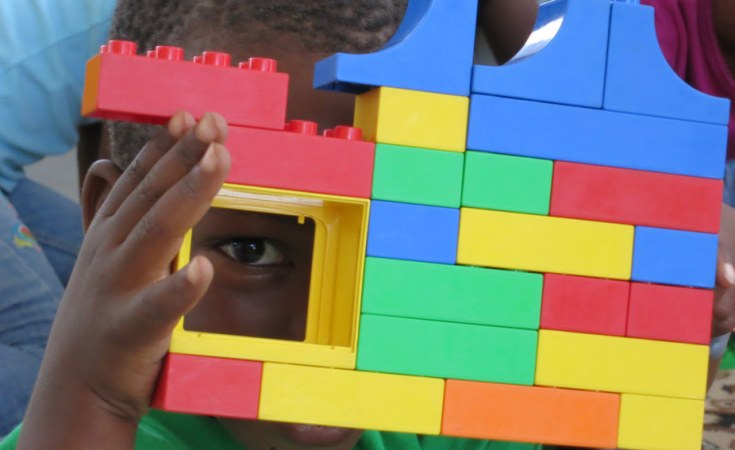After Boitumelo gave birth she decided not to go back to school. She assumed that, because she was now a mother, she would be barred from returning. Then she had a surprising interaction:
They [school] were like, why did you not come back [to school], do you attend [school] elsewhere? I was like, no, I have a child. Then they were like, on January we need you here, this school is empty without you, and that gave me the confidence of saying, oh I must go back to school.
In fact, Boitumelo had the right, under South African law, to continue her schooling through and after her pregnancy - without fear of stigma or discrimination. But her experience of a supportive school environment is sadly all too rare. In early November 2022 a learner in the KwaZulu-Natal province was forced to take her school to court so she could sit for her final matriculation exams. She was expelled in July 2022 in accordance with the school's "pregnancy policy."
More than 100,000 adolescent girls give birth in South Africa each year. Adolescent births represented between 12 and 14% of births in facilities between 2019 and 2022. Specifically, the number of births delivered by adolescents aged between 10 and 19 in South Africa's public health facilities rose from 129,223 in 2019 to 139,361 in 2022. This increase in the number of births is a setback when viewed against the modest progress made in lowering teenage pregnancy rates between 1998 and 2016.
Early, unintended pregnancy affects young women's educational, health, social and economic futures. It can keep them from continuing or finishing school and thus from pursuing further education and training.
I wanted to know what influenced young women's decisions about schooling when they found out they were pregnant. Some dropped out temporarily; some remained in school throughout their pregnancies and returned after giving birth. Others dropped out permanently.
My findings suggest that schools, families and the wider community play a critical role in determining what decision a young woman will make. Support and encouragement can keep them in school while stigmatisation and exclusion push them out entirely.
Support and childcare
For my study I conducted in-depth interviews with 30 young women in an urban community in South Africa; 24 were in school when they found out they were pregnant. Their ages ranged from 15 to 20 years. In all but one case, their pregnancies were unintended.
Thirteen of the participants had decided to remain at school upon finding out they were pregnant.
They experienced mixed reactions from the school management and teachers along a continuum of active support for them to continue school, to not acknowledging the pregnancy at all, to attempts to dismiss or shame them.
In one case a pregnant learner was told she had to leave school because it would not take responsibility for her health. Her mother challenged the school by arranging for an aunt to accompany the young woman to school every day to take responsibility for her health.
Being able to organise childcare for babies was an important determinant for remaining at school. The Child Support Grant, which currently amounts to R480 (about US$28) per month and is awarded through means testing, increased the agency of young mothers to find care for their babies in local creches or paid caregivers, especially in urban areas, where kin were not always available for childcare.
A further important determinant of remaining at school in spite of challenges experienced was the desire not to disappoint families who had made sacrifices to educate their daughters.
Making hard decisions
Another six of the participants temporarily dropped out of school. This was largely a result of school policy, shame and embarrassment about attending school while pregnant, and taking a break while coping with the onerous demands of pregnancy and motherhood.
The remaining five young women I interviewed permanently dropped out of school because of school policy, inability to manage the dual demands of motherhood and schooling, and lack of support to care for their babies. Their decision was strongly influenced by the reactions of family, partners and friends.
For example, Bontle was told by her mother that she had to take care of her "mistake" (baby) and therefore had to give up school:
I couldn't go back (to school) because my mother said I should take care of the baby, no one's going to take care of my baby because it is a choice that I made and I wanted to have a baby while I was still schooling.
These findings emphasise the critical role schools and the wider family and community play in determining young pregnant women's decisions to continue and complete their schooling.
They also show how schools continue to exercise "policy" barring pregnant learners from school or shaming them in spite of this violating South Africa's legal and constitutional framework.
Young pregnant women require support to advocate for their right to continue schooling and need care and support by family and community to make it easier to continue going to school.
Accountability and support
The Department of Basic Education must ensure that school management and governing bodies are well versed with policy around pregnant learners. Schools that violate the rights of pregnant learners must be held to account.
Individual schools need to strike a balance between treating pregnant learners like any other learner and accommodating their particular needs. Pregnant learners' increased risk of dropping out of school should be seen within the broader package of care and support offered to vulnerable learners, and teachers should be trained to offer psychosocial and other support.
Schools can also link pregnant and parenting learners to health and social services; for example, ensuring that young mothers receive the Child Support Grant.
Nirvana Pillay, Visiting Researcher Wits School of Public Health, University of the Witwatersrand


